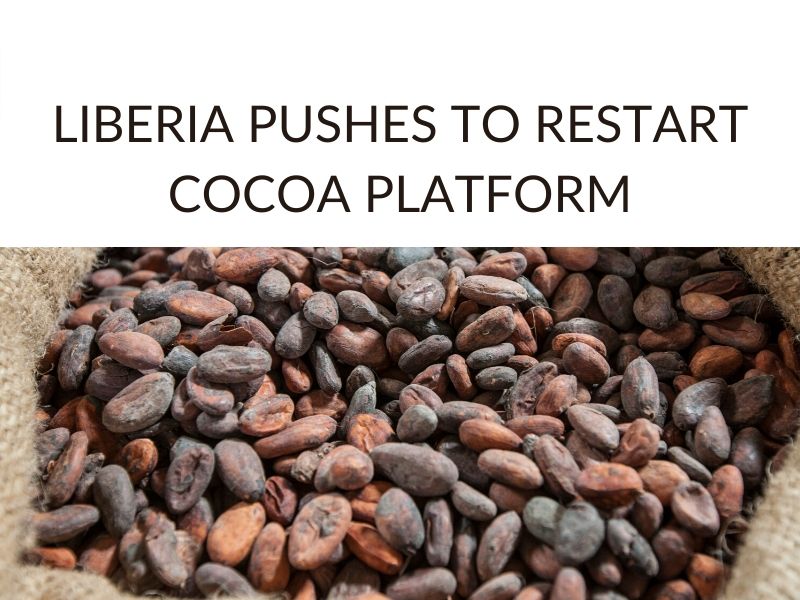A day-long workshop was held by Agriculture Minister Jeanine Cooper to discuss prospects and challenges facing the Liberia cocoa sector.
Cocoa is the third most important crop in Liberia, after rubber and palm oil. About 30,000 smallholder farmers are engaged mostly in cocoa production in agroforestry production systems.
The workshop’s goal was to reactivate the Cocoa sector platform, a multi-disciplinary approach that includes multi-nationals that donors projects, processors, exporters, and farmers.
The platform has been suspended due to the COVID-19 pandemic. Now as the country is entering the cocoa planting season, Liberia trying to reactivate as farmers have entered a planting cocoa season.
Cooper presented an upbeat message:
Since I came to office, we have some people producing chocolate in Liberia at its superior quality. The sector is ready to industrialize in Liberia despite all the challenges.
She added that some of the challenges involve coordination. The farmers have expressed confusion, and she, as a new minister, also had difficulties following and identifying who is doing what in each sector.
Madam Josephine Francis, President of the Farmers Union network, in an interview, emphasised the need for better coordination among policymakers and participants in the cocoa sector.
She expressed concern about cocoa trees, planted in the 70s because most of them were now seeing reduced yields as they aged.
The farmers also were ageing, and their children have ventured into other sectors. She believes that with the help of LACRA, CARI, and the Ministry of Agriculture, they could rehabilitate the cocoa trees.
Francis suggested training graduates of the University of Liberia Agriculture College to make the industry’s needed changes.
There are good chocolate companies who want to do business with the Liberia cocoa sector.
Madam Josephine Francis, President of the Farmers Union network
The Liberian National Cocoa Sector Public-Private Platform, also known as the NC3P, is a public-private platform that was launched in 2019 as part of a four-year initiative supported by the European Union and implemented by Solidaridad West Africa and partners.
It was hoped that over this period a number of structural changes could be made in the cocoa sector that would have lasting positive impact.
Over the past year, the platform has made progress, notably with capacity-building initiatives, and recommendations on issues related to cocoa regulations and proposed legislation.
The group was able to initiate discussions and networking among stakeholders, and co-facilitate the attendance of platform stakeholders in the international cocoa sector related events.
COVID has obviously disrupted those plans, but Cooper is obviously eager to get it back on track.
The goal of the initiative is for a:
sustainable cocoa sector that enhances smallholder farmers, agricultural entrepreneurs, and protects the forests of Liberia.”
To enable the achievements, the platform started a governance structure comprised of a General Assembly, a Steering Committee, a Secretariat (led by IDH Liberia), and several technical committees.
This structure has laid the ground for future work, such as the finalisation of the Liberia Cocoa Sector Roadmap and other programmes.
With the COVID 19 pandemic and the Government of Liberia’s declaration of a state of emergency (that led to movement restrictions, social distancing requirements, etc.) in early April 2020, the platform’s work was severely affected.
National cocoa bean production is estimated to be between 7,000 to 17,000 metric tons annually, with an unknown amount of Liberian cocoa beans being informally exported to neighbouring countries such as Cote D’Ivoire, Guinea and Sierra Leone.

